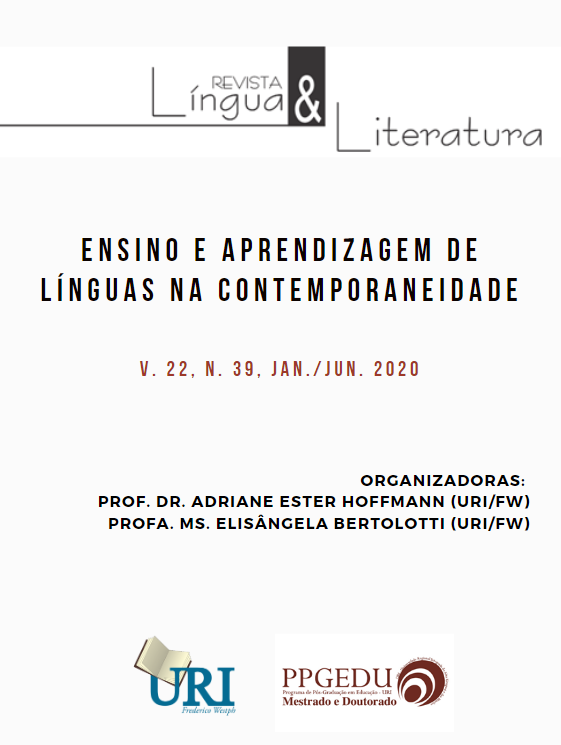THE BURDEN OF IDENTITY. TRANS-LINGUAL AUTHORS NGUGI WA THIONG’O, JUAN RODOLFO WILCOCK AND JOSEPH CONRAD
Palavras-chave:
Globalization. Nacionality. Tradition. Translingualism. Identity.Resumo
Abstract: At a time when globalization questions the legitimacy of organizing literary traditions based on national categories, the decision by some authors to write in a second language gains importance as an expression of uneasy subjectivities. By virtue of their translingualism they evade the imposition of a national identity built on a linguistic basis.
This paper focuses on the cases of Ngugi wa Thiong’o [1938] –a Kenyan writer who forsakes English and turns to his native Gîkûyû–, Juan Rodolfo Wilcock [1919-1978] –an Argentine writer who abandons Spanish and goes to Italy to write in Italian– and Joseph Conrad [1857-1924]– a Polish writer who employs English to write about Africa. It analyzes the transactions these shifts entail and the presence of traces of an underlying language so as to view these author’s works as “contact zones” where different cultures overlap and coexist.
Downloads
Publicado
Edição
Seção
Licença

A Revista Língua & Literatura foi licenciada com uma Licença CreativeCommons - Atribuição Não Comercial – Sem derivados 3.0 Não Adaptada.
Língua & Literatura não passa a deter os créditos sobre ensaios publicados. Em caso de republicação, solicita-se apenas referendar o ano e volume de nossa revista onde ocorreu a publicação inicial.

